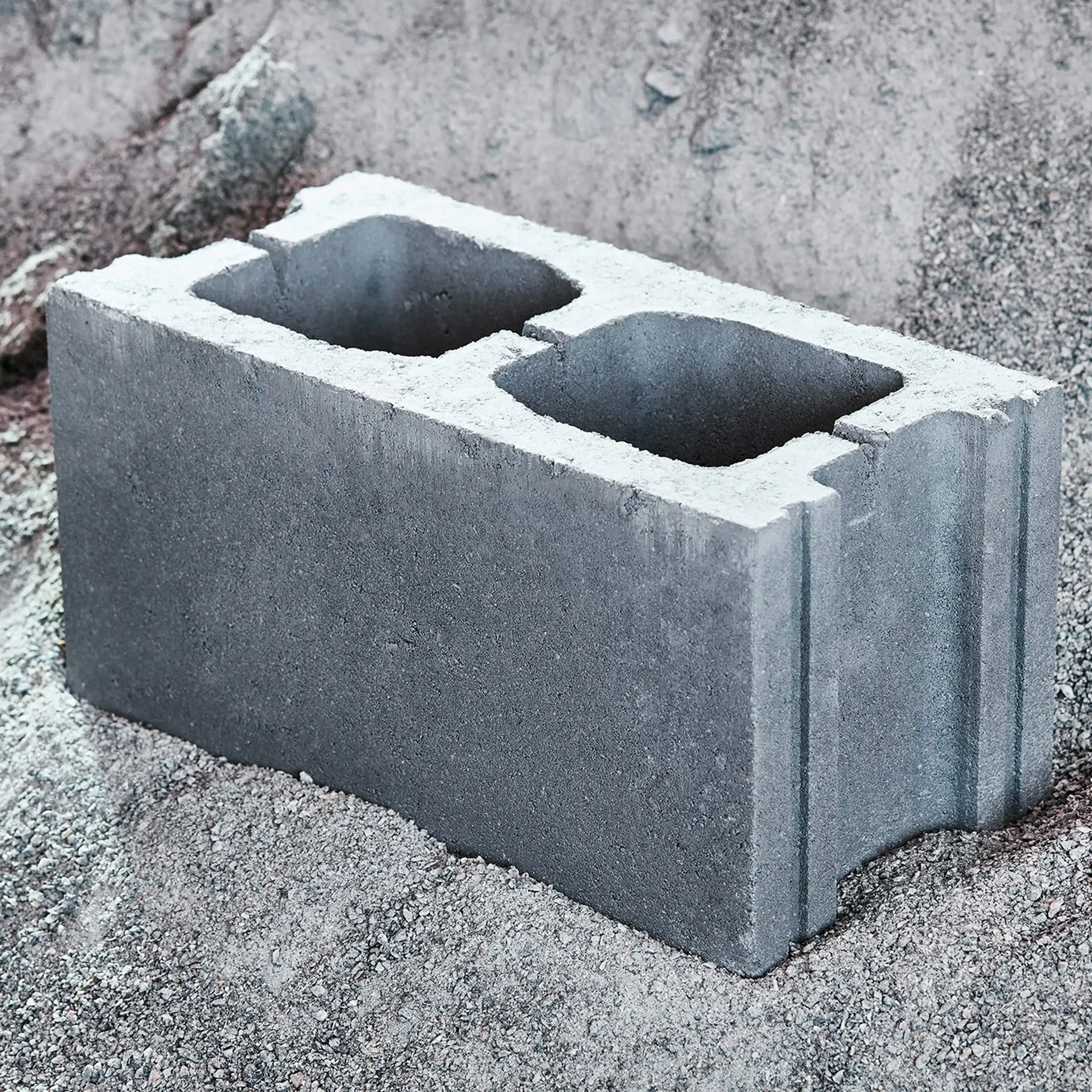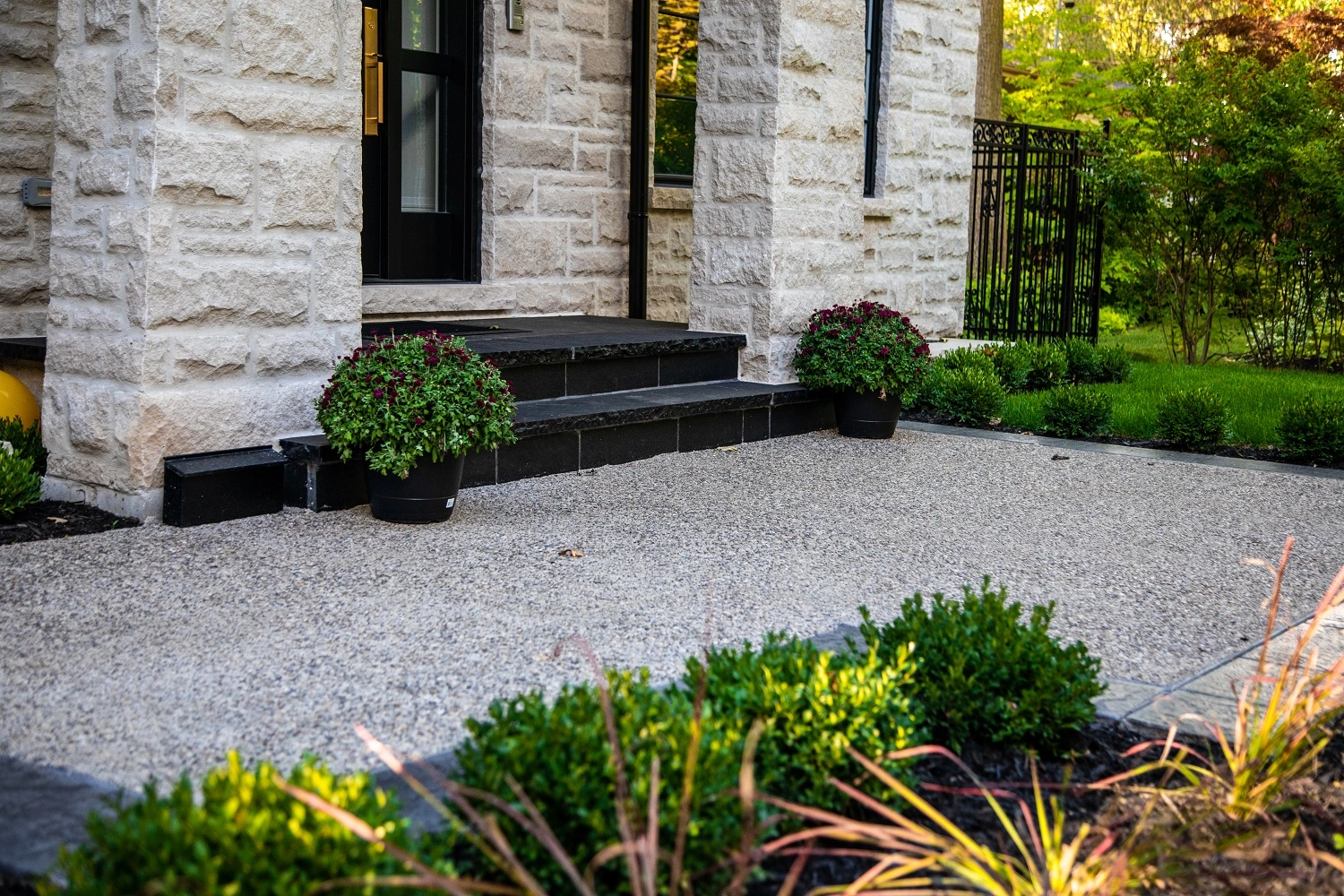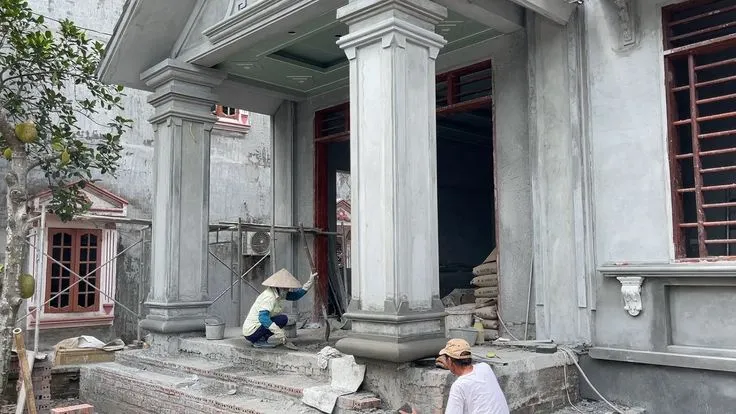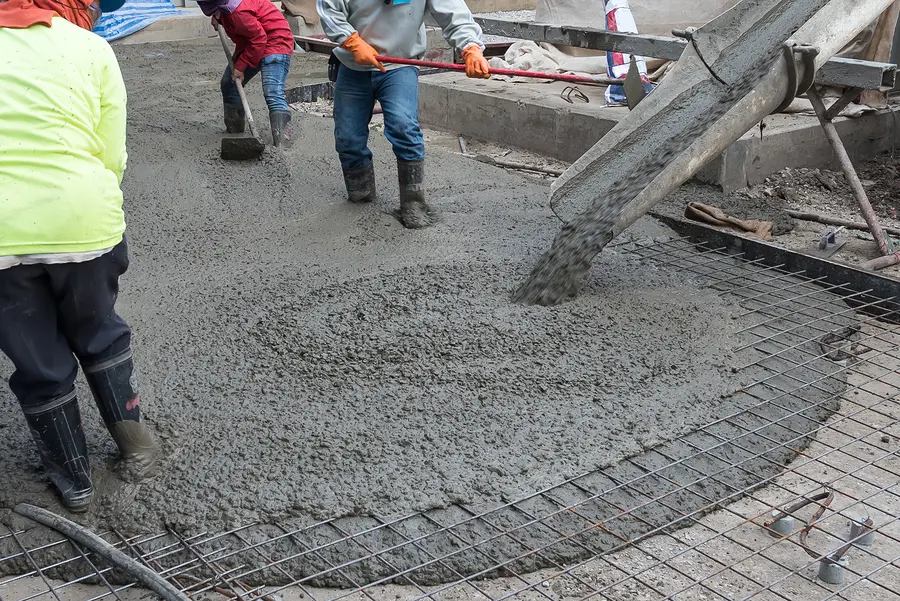How does concrete installation save money?
Concrete installation is a crucial aspect of construction projects. Understanding its importance ensures successful construction endeavors.
Importance of Concrete Installation
Concrete is the backbone of modern infrastructure, providing strength, durability, and stability. Proper concrete installation ensures that structures can withstand the test of time, environmental factors, and heavy loads. Whether it's a small sidewalk or a massive skyscraper, the quality of concrete installation directly impacts the safety and longevity of the structure.
Key Points to be Discussed
Structural Integrity: Properly installed concrete ensures the structural integrity of buildings and infrastructure, preventing cracks, sinking, or collapse.
Safety: Well-installed concrete provides a secure environment for occupants and users, minimizing the risk of accidents or structural failures.
Cost-effectiveness: Investing in high-quality concrete installation upfront can save money in the long term by reducing the need for extensive repairs or premature replacements.
Understanding the importance of concrete installation ensures the safety, longevity, and sustainability of construction projects. By prioritizing proper installation techniques and materials, builders can create structures that stand firm for generations.
Strength and Load-Bearing Capacity:
One of concrete's primary attributes is its remarkable strength, derived from the combination of cement, aggregates, and water. This composition results in a material capable of bearing substantial weight without succumbing to deformation or failure. Whether supporting the weight of a multi-story building or enduring the constant traffic of vehicles on a bridge, concrete's load-bearing capacity is unparalleled.
Stability and Longevity:
The importance of concrete in creating stable structures cannot be overstated. Its durability provides the foundation upon which buildings, roads, bridges, and various infrastructure elements rely. Concrete ensures the stability and longevity of these structures by withstanding environmental factors such as temperature fluctuations, moisture, and seismic activity.

Furthermore, adequately designed and installed concrete structures can last for decades, if not centuries, with minimal maintenance. This longevity ensures the safety of occupants and users and delivers significant cost savings over time.
Concrete's strength and ability to withstand heavy loads make it an indispensable material in construction. Its importance in creating stable and long-lasting structures cannot be overstated. By harnessing concrete's durability, builders can construct infrastructure that stands firm against the challenges of the environment and the rigors of everyday use.
Versatility:
Its ability to adapt to different needs and environments has solidified its position as a go-to material in the construction industry.
Wide Range of Applications:
Concrete's versatility shines through its diverse range of applications. It is indispensable for residential projects like driveways, sidewalks, and patios and large-scale infrastructure such as highways, bridges, and dams. Moreover, it is the backbone of commercial and industrial structures, including warehouses, factories, and high-rise buildings. This adaptability ensures that concrete remains in high demand across various construction sectors.
Moldability and Formability
One of concrete's most remarkable attributes is its ability to be molded into various shapes and forms. This inherent flexibility allows builders to customize concrete structures to meet specific design requirements and aesthetic preferences. Whether creating sleek architectural features or intricate decorative elements, concrete can be shaped to bring virtually any vision to life. Its moldability also facilitates the incorporation of reinforcements such as steel bars, enhancing structural integrity and resilience.
Concrete's versatility makes it an invaluable asset in the construction industry. Whether a minor residential upgrade or a large-scale infrastructure endeavor, concrete repeatedly proves its adaptability, cementing its status as a cornerstone material in modern construction practices.
Affordability:
Concrete stands out for its exceptional affordability, offering cost-effective solutions for construction projects of all sizes. Its economic advantages make it a preferred choice for budget-conscious projects and homeowners. Its widespread availability and simple manufacturing process contribute to its affordability. Additionally, concrete's durability minimizes the need for frequent repairs or replacements, further reducing long-term maintenance expenses. This cost-effectiveness makes concrete attractive for developers, contractors, and homeowners looking to maximize their investment.
Maintenance:
Concrete boasts minimal maintenance requirements compared to other building materials, making it a cost-effective and hassle-free choice for construction projects. Understanding its low upkeep needs is essential for reducing long-term costs and efforts associated with maintenance tasks.
Low Maintenance Requirements:
One of concrete's key advantages is its low maintenance. Unlike materials such as wood or metal, which may require regular painting, sealing, or repairs, concrete typically needs minimal upkeep once correctly installed. Routine cleaning and occasional sealing are usually sufficient to keep concrete surfaces looking their best for years.
Importance for Cost Reduction:
Concrete's minimal maintenance requirements translate into significant cost savings over time. Concrete helps lower long-term maintenance expenses for property owners, developers, and municipalities by reducing the need for frequent repairs, replacements, and upkeep efforts. Additionally, the durable nature of concrete means that structures built with this material are less susceptible to deterioration, extending their lifespan and further enhancing cost-effectiveness.
Efficiency in Upkeep:
Concrete's low maintenance needs also translate into fewer efforts for upkeep tasks. Whether it's cleaning sidewalks, maintaining parking lots, or inspecting structural elements, the simplicity of concrete maintenance streamlines the process, saving time and resources for stakeholders. This efficiency allows property owners to focus on other priorities without compromising the integrity or appearance of concrete surfaces.
Concrete's low maintenance requirements make it attractive for construction projects seeking to minimize long-term costs and efforts associated with upkeep. By opting for concrete, builders and property owners can enjoy the benefits of a durable, resilient material that requires little intervention to maintain its quality and appearance over time.
Aesthetic Appeal
Understanding its aesthetic potential is essential for creating captivating environments that leave a lasting impression.
Variety of Finishes and Options:
Concrete's versatility extends to its aesthetic possibilities, with many finishes and decorative techniques available to suit diverse design preferences. From exposed aggregate and stamped patterns to polished surfaces and colored overlays, the options for customizing concrete are endless. Additionally, concrete can be shaped into various forms and textures, allowing builders and designers to create unique and visually stunning elements that complement any architectural style or theme.
Enhancing Visual Appeal:
Whether indoors or outdoors, decorative concrete features can add character, depth, and sophistication to any environment. From elegant driveways and inviting patios to striking facades and intricate sculptures, concrete's aesthetic versatility elevates the visual appeal of residential, commercial, and public spaces.
Importance in Design:
Aesthetics are paramount in architectural and interior design. By incorporating decorative concrete elements, designers can add visual interest, texture, and personality to projects, transforming ordinary surfaces into focal points that inspire and delight.
Concrete's aesthetic appeal lies in its ability to offer diverse finishes and decorative options that enhance the visual appeal of spaces and structures.
Economic Impact:
Concrete is pivotal in driving economic growth through its contribution to construction projects. Understanding its significance in job creation and economic development is crucial for fostering thriving communities and sustainable prosperity.
Driving Economic Growth:
Construction projects fueled by concrete contribute significantly to economic growth by stimulating investment, generating revenue, and creating demand for goods and services. From residential developments and commercial complexes to infrastructure upgrades and public works projects, concrete-based construction activities drive activity across various sectors of the economy. Moreover, the long-term benefits of durable concrete structures contribute to the sustainability of economic growth by providing lasting assets that support continued prosperity.
Job Creation:
Concrete-related construction projects create many job opportunities, spanning various skill levels and occupations. Additionally, the ripple effect of construction activity extends beyond direct employment, supporting ancillary industries such as manufacturing, transportation, and retail. The jobs created by concrete construction projects provide livelihoods for individuals and families and contribute to local economic vitality.
Economic Development:
Concrete construction projects are vital in driving economic development in communities by enhancing infrastructure, acting on investment, and improving quality of life. Well-designed and executed projects contribute to the attractiveness and competitiveness of communities, making them more attractive to residents, businesses, and visitors. Furthermore, the infrastructure improvements facilitated by concrete construction support economic activities such as transportation, commerce, and tourism, fostering sustainable growth and prosperity.
, concrete's role in driving economic growth, job creation, and economic development is undeniable. By fueling construction projects that enhance infrastructure and create employment opportunities, concrete contributes to the vitality and resilience of communities, laying the foundation for long-term prosperity and well-being.
Conclusion
Concrete installation is crucial in construction and infrastructure development, as highlighted by its durability, versatility, affordability, sustainability, safety, low maintenance requirements, aesthetic appeal, and economic impact.
Throughout this discussion, we've explored how concrete's strength and ability to withstand heavy loads ensure the stability and longevity of structures. Its versatility allows it to be molded into various shapes and forms, catering to diverse design needs. Additionally, concrete's affordability makes it a cost-effective choice for projects of all sizes, while its sustainability features contribute to environmental conservation and green building practices.
Moreover, concrete's inherent fire resistance and capacity to ensure structural integrity prioritize safety in construction endeavors. Its low maintenance requirements translate into long-term cost savings and efficiency in upkeep efforts. Furthermore, con rete's aesthetic appeal enhances the visual appeal of spaces and structures, adding character and sophistication to architectural designs.
The importance of concrete installation cannot be overstated. It serves as the foundation for safe, durable, sustainable, and visually appealing construction projects that contribute to the prosperity and well-being of society. CALL US ANYTIME (754) 201-2329. Premier Concrete Contractor in Pompano Beach, as we are Embracing the benefits of concrete in construction practices, ensures the creation of resilient infrastructure that stands the test of time




